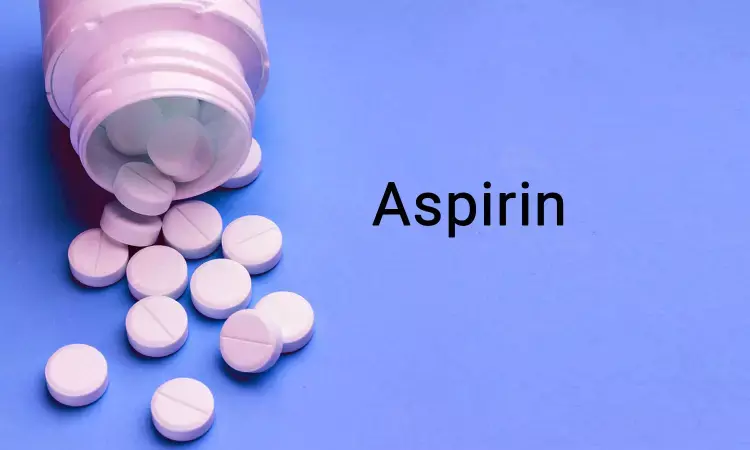- Home
- Medical news & Guidelines
- Anesthesiology
- Cardiology and CTVS
- Critical Care
- Dentistry
- Dermatology
- Diabetes and Endocrinology
- ENT
- Gastroenterology
- Medicine
- Nephrology
- Neurology
- Obstretics-Gynaecology
- Oncology
- Ophthalmology
- Orthopaedics
- Pediatrics-Neonatology
- Psychiatry
- Pulmonology
- Radiology
- Surgery
- Urology
- Laboratory Medicine
- Diet
- Nursing
- Paramedical
- Physiotherapy
- Health news
- Fact Check
- Bone Health Fact Check
- Brain Health Fact Check
- Cancer Related Fact Check
- Child Care Fact Check
- Dental and oral health fact check
- Diabetes and metabolic health fact check
- Diet and Nutrition Fact Check
- Eye and ENT Care Fact Check
- Fitness fact check
- Gut health fact check
- Heart health fact check
- Kidney health fact check
- Medical education fact check
- Men's health fact check
- Respiratory fact check
- Skin and hair care fact check
- Vaccine and Immunization fact check
- Women's health fact check
- AYUSH
- State News
- Andaman and Nicobar Islands
- Andhra Pradesh
- Arunachal Pradesh
- Assam
- Bihar
- Chandigarh
- Chattisgarh
- Dadra and Nagar Haveli
- Daman and Diu
- Delhi
- Goa
- Gujarat
- Haryana
- Himachal Pradesh
- Jammu & Kashmir
- Jharkhand
- Karnataka
- Kerala
- Ladakh
- Lakshadweep
- Madhya Pradesh
- Maharashtra
- Manipur
- Meghalaya
- Mizoram
- Nagaland
- Odisha
- Puducherry
- Punjab
- Rajasthan
- Sikkim
- Tamil Nadu
- Telangana
- Tripura
- Uttar Pradesh
- Uttrakhand
- West Bengal
- Medical Education
- Industry
Low dose aspirin a day does not prevent dementia, finds study

MINNEAPOLIS - Daily low-dose aspirin intake does not reduce the risk of thinking and memory problems caused by mild cognitive impairment or probable Alzheimer's disease, nor does it slow the rate of cognitive decline. The study has been published in online issue of Neurology®, the medical journal of the American Academy of Neurology.
Aspirin has anti-inflammatory properties and also thins the blood. For years, doctors have been prescribing low-dose aspirin for some people to reduce their risk of heart disease and stroke. However, there are also possible risks to taking aspirin, including bleeding in the brain, so guidance from a doctor is important.
Because aspirin can be beneficial to the heart, researchers have hypothesized, and smaller previous studies have suggested, that it may also be beneficial to the brain, possibly reducing the risk of dementia by reducing inflammation, minimizing small clots or by preventing the narrowing of blood vessels within the brain.
"Worldwide, an estimated 50 million people have some form of dementia, a number that is expected to grow as the population increases, so the scientific community is eager to find a low-cost treatment that may reduce a person's risk," said study author Joanne Ryan, PhD, of Monash University's School of Public Health in Melbourne, Australia. "Unfortunately, our large study found that a daily low-dose aspirin provided no benefit to study participants at either preventing dementia or slowing cognitive decline."
The study involved 19,114 people who did not have dementia or heart disease. A majority of participants were age 70 or older. They took thinking and memory tests at the start of the study as well as during follow-up visits.
Half of the people were given daily 100 milligram low-dose aspirin while the other half were given a daily placebo. They were followed for an average of 4.7 years, with annual in-person examinations.
Over the course of the study, 575 people developed dementia.
Researchers found no difference between those who took aspirin and those who took placebo in the risk of developing mild cognitive impairment, dementia, or probable Alzheimer's disease. There was also no difference in the rate of cognitive change over time.
"While these results are disappointing, it is possible that the length of just under five years for our study was not long enough to show possible benefits from aspirin, so we will continue to examine its potential longer-term effects by following up with study participants in the coming years," said Ryan.
A limitation of the study was that only relatively healthy people were enrolled, and such a population may benefit less from aspirin than the general population.
Hina Zahid Joined Medical Dialogue in 2017 with a passion to work as a Reporter. She coordinates with various national and international journals and association and covers all the stories related to Medical guidelines, Medical Journals, rare medical surgeries as well as all the updates in the medical field. Email: editorial@medicaldialogues.in. Contact no. 011-43720751
Dr Kamal Kant Kohli-MBBS, DTCD- a chest specialist with more than 30 years of practice and a flair for writing clinical articles, Dr Kamal Kant Kohli joined Medical Dialogues as a Chief Editor of Medical News. Besides writing articles, as an editor, he proofreads and verifies all the medical content published on Medical Dialogues including those coming from journals, studies,medical conferences,guidelines etc. Email: drkohli@medicaldialogues.in. Contact no. 011-43720751


